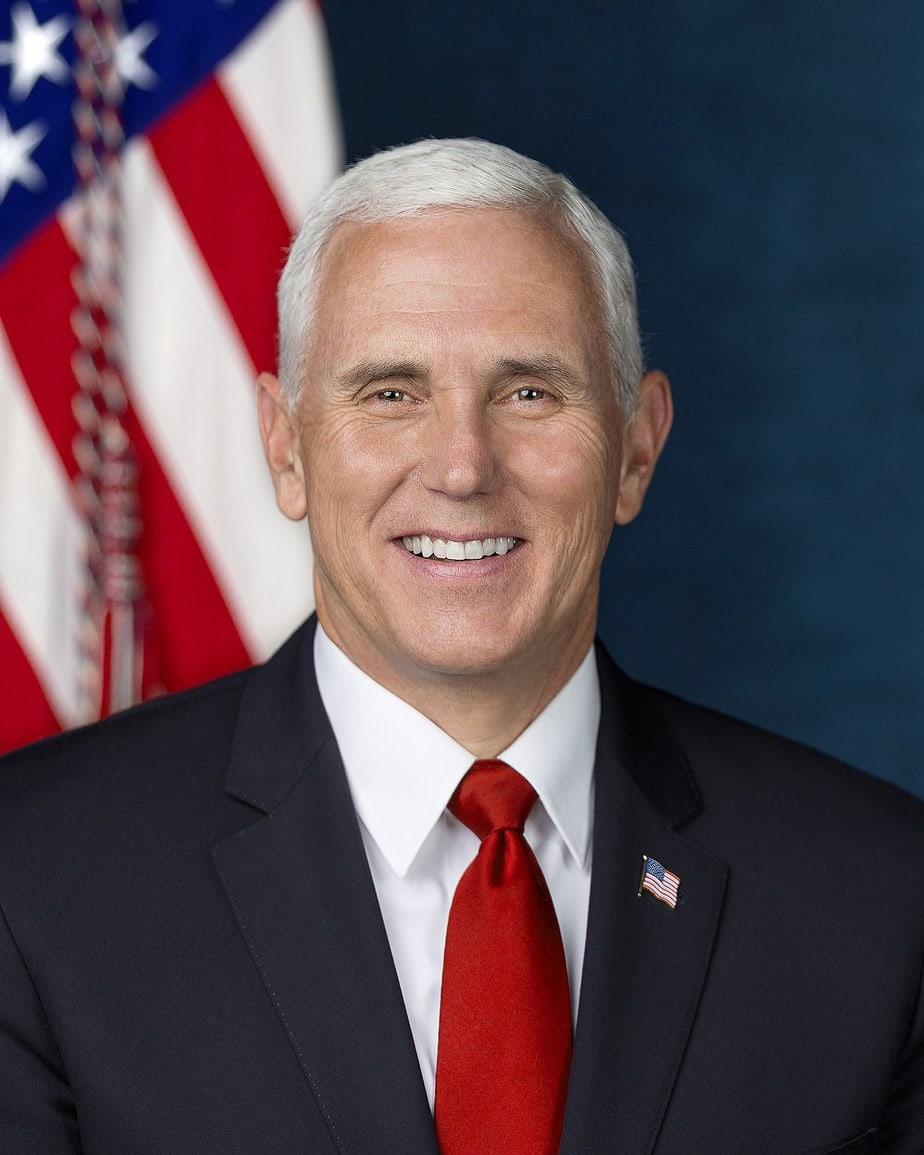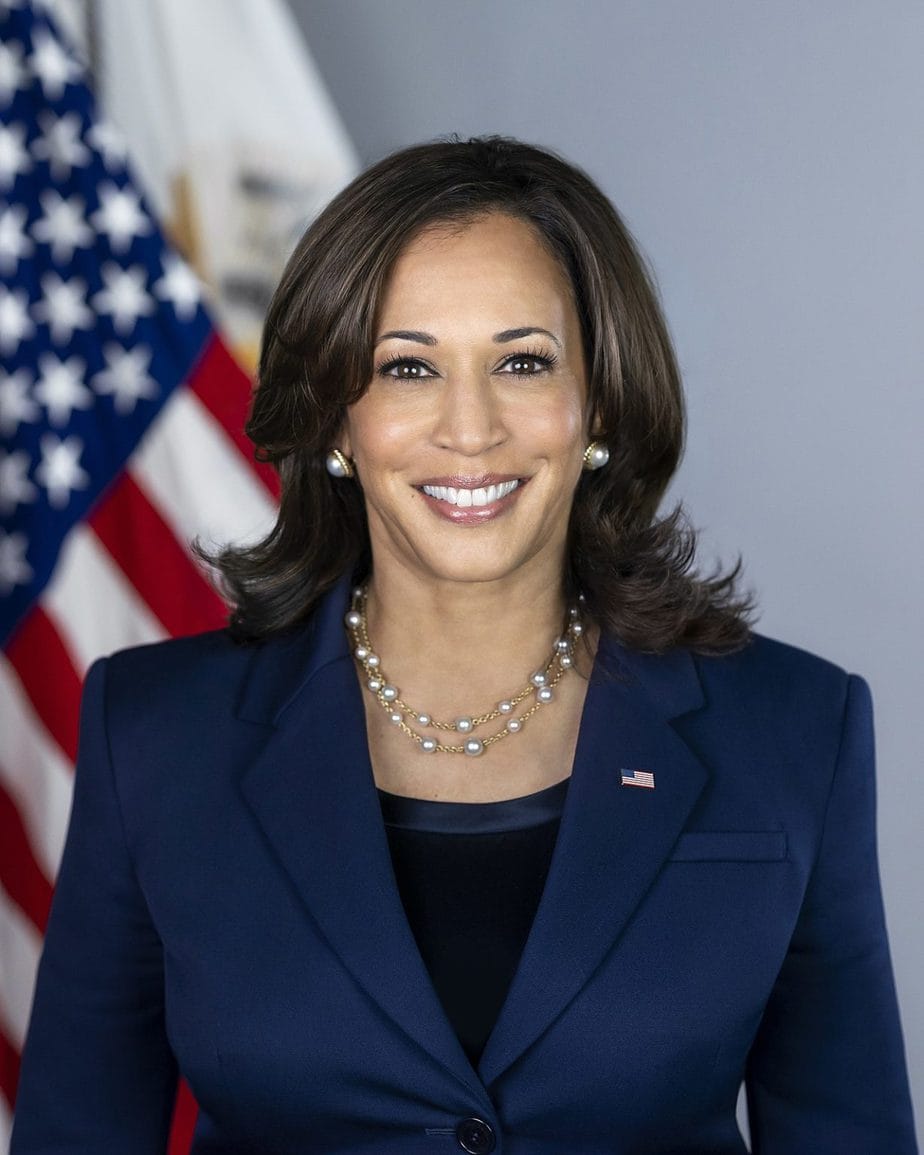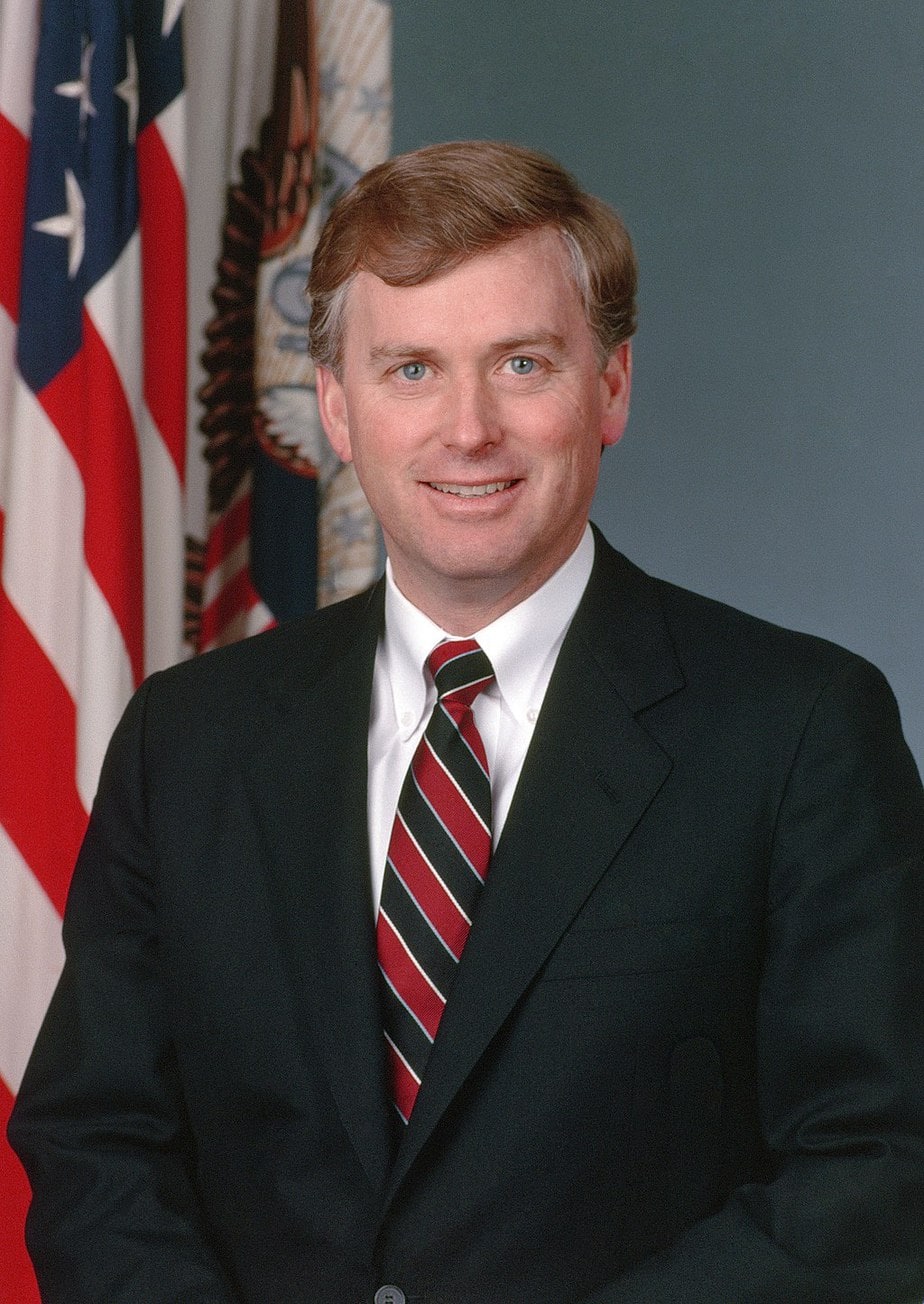The Youngest Vice President In US History: A Legacy Of Leadership And Youth
Who is the youngest person to ever serve as Vice President of the United States? The answer is Theodore Roosevelt, who, at age 42, ascended to the vice presidency following the assassination of President William McKinley in 1901.
Roosevelt's early rise to high office was marked by a life of public service and political ambition. Born into a wealthy New York family, Roosevelt exhibited a passion for politics from a young age. He served in the New York State Assembly and as New York City Police Commissioner before being elected Governor of New York in 1898. His popularity and progressive policies made him a rising star within the Republican Party.
In 1900, Roosevelt was selected as McKinley's running mate in the presidential election. The Republican ticket won by a landslide, and Roosevelt became the youngest vice president in U.S. history. However, his tenure was short-lived. Less than a year into his term, McKinley was assassinated, and Roosevelt was sworn in as president.
Roosevelt's presidency was a time of great change and progress for the United States. He championed progressive reforms, expanded the role of the federal government, and played a key role in the construction of the Panama Canal. He is widely considered to be one of the most consequential presidents in American history.
The Importance of the Vice Presidency
The vice presidency is often seen as a stepping stone to the presidency, and many vice presidents have gone on to become president. In addition to Roosevelt, eight other vice presidents have succeeded to the presidency after the death or resignation of the president. These include John Tyler, Millard Fillmore, Andrew Johnson, Chester A. Arthur, Theodore Roosevelt, Calvin Coolidge, Harry S. Truman, and Lyndon B. Johnson.
The vice president also plays an important role in the legislative process. The vice president presides over the Senate and can cast a tie-breaking vote. In addition, the vice president is a member of the National Security Council and the cabinet.
- Jay Z Cant Knock Topic
- Pierce Brosnan Children
- Jason Beghe
- Mark Paul Gosselaar Mom And Dad
- Evan James Springsteen
The Challenges of the Vice Presidency
The vice presidency can be a challenging job. The vice president is often overshadowed by the president and has limited power. In addition, the vice president can be a target of criticism from both the opposition party and members of their own party.
Despite the challenges, the vice presidency can be a rewarding job. The vice president has a unique opportunity to learn from the president and to influence policy. In addition, the vice president can play a key role in representing the United States abroad.
The Future of the Vice Presidency
The role of the vice presidency is likely to continue to evolve in the years to come. As the United States faces new challenges, the vice president will be called upon to play an increasingly important role in shaping the nation's future.
Youngest U.S. Vice President
The youngest person to ever serve as Vice President of the United States was Theodore Roosevelt, who, at age 42, ascended to the vice presidency following the assassination of President William McKinley in 1901.
- Age: 42 years old
- Term: 1901-1905
- Party: Republican
- Presided over the Senate: Yes
- Succeeded to the presidency: Yes
Roosevelt's early rise to high office was marked by a life of public service and political ambition. Born into a wealthy New York family, Roosevelt exhibited a passion for politics from a young age. He served in the New York State Assembly and as New York City Police Commissioner before being elected Governor of New York in 1898. His popularity and progressive policies made him a rising star within the Republican Party.
In 1900, Roosevelt was selected as McKinley's running mate in the presidential election. The Republican ticket won by a landslide, and Roosevelt became the youngest vice president in U.S. history. However, his tenure was short-lived. Less than a year into his term, McKinley was assassinated, and Roosevelt was sworn in as president.
Roosevelt's presidency was a time of great change and progress for the United States. He championed progressive reforms, expanded the role of the federal government, and played a key role in the construction of the Panama Canal. He is widely considered to be one of the most consequential presidents in American history.
Age
Theodore Roosevelt's age at the time of his ascension to the vice presidency was a significant factor in his political career and his impact on the office.
- Early Political Experience: Roosevelt's relatively young age when he entered politics allowed him to gain valuable experience and build a strong political base before reaching the national stage. He served in the New York State Assembly, as New York City Police Commissioner, and as Governor of New York before becoming vice president. This early experience gave him a deep understanding of government and politics, which he used to great effect as vice president and later as president.
- Vigor and Energy: Roosevelt's youth gave him the vigor and energy needed to handle the demands of the vice presidency and the presidency. He was known for his tireless work ethic and his ability to inspire others. His youthful enthusiasm and optimism were also valuable assets in his political career.
- Public Appeal: Roosevelt's age made him appealing to voters, particularly younger voters. He was seen as a representative of a new generation of leaders, and his youthful image helped him connect with voters who were looking for change. This public appeal was a major factor in his political success.
- Historical Significance: Roosevelt's age made him a historical figure. He was the youngest person to ever serve as vice president and president, and his youthful presidency marked a new era in American politics. His legacy as a young and dynamic leader continues to inspire future generations.
Theodore Roosevelt's age at the time of his vice presidency was a significant factor in his political career and his impact on the office. His youth gave him the experience, energy, and public appeal needed to be a successful vice president and president. He remains a historical figure, and his legacy as a young and dynamic leader continues to inspire future generations.
Term
Theodore Roosevelt's term as vice president was brief, lasting only from 1901 to 1905. However, his short tenure was marked by several significant events and accomplishments.
- Presiding over the Senate: As vice president, Roosevelt presided over the Senate and cast several tie-breaking votes on important legislation. This included a vote on the Panama Canal Treaty, which was a key foreign policy initiative of President McKinley.
- Expansion of the Vice President's Role: Roosevelt used his position as vice president to expand the role of the office. He gave speeches, wrote articles, and traveled extensively on behalf of the administration. He also played a key role in the negotiations that led to the end of the Russo-Japanese War.
- Preparation for the Presidency: Roosevelt's term as vice president gave him valuable experience and preparation for the presidency. He learned about the inner workings of the government and developed close relationships with key political figures.
- Succession to the Presidency: In 1901, President McKinley was assassinated, and Roosevelt succeeded to the presidency. He was 42 years old at the time, making him the youngest person to ever serve as president.
Theodore Roosevelt's term as vice president was brief but eventful. He used his position to expand the role of the office and prepare himself for the presidency. His experience as vice president was invaluable in his successful presidency.
Party
The Republican Party has a long and storied history in the United States, and its members have played a major role in the nation's political development. The party was founded in 1854 by anti-slavery activists, and it has since become one of the two major political parties in the United States.
Theodore Roosevelt, the youngest person to ever serve as Vice President of the United States, was a member of the Republican Party. Roosevelt was a rising star within the party, and his selection as McKinley's running mate in the 1900 presidential election was seen as a sign of the party's commitment to the future. Roosevelt's election as vice president was a significant event for the Republican Party, as it marked the first time that a member of the party had held the office since 1877.
Roosevelt's term as vice president was brief, but he made a significant impact on the office. He used his position to expand the role of the vice president and to prepare himself for the presidency. His experience as vice president was invaluable in his successful presidency.
The Republican Party has a long tradition of nominating young and ambitious candidates for office. This tradition continues today, as the party seeks to attract new voters and to energize its base. The party's commitment to young candidates is a reflection of its belief in the future of the United States.
Presided over the Senate
As Vice President of the United States, Theodore Roosevelt presided over the Senate, a significant responsibility that underscores his role and influence in the legislative branch of the U.S. government.
- Role in Legislation: As the presiding officer of the Senate, Roosevelt played a crucial role in the legislative process. He could cast tie-breaking votes on proposed bills, influencing the outcome of important legislation.
- Influence on Policy: Roosevelt's presence in the Senate allowed him to shape policy discussions and debates. His speeches and interventions on the Senate floor carried weight and helped shape the direction of legislation.
- Representation of the Executive Branch: Roosevelt's role in the Senate provided a direct link between the executive and legislative branches of government. He could convey the President's views to the Senate and advocate for the administration's agenda.
- Understanding of Legislative Process: Roosevelt's experience presiding over the Senate gave him a deep understanding of the legislative process and the inner workings of Congress. This knowledge proved invaluable during his presidency.
Theodore Roosevelt's role as the presiding officer of the Senate was a testament to his political acumen and his ability to navigate the complex world of American politics. His experience in the Senate laid the groundwork for his successful presidency and shaped his legacy as a dynamic and influential leader.
Succeeded to the presidency
The fact that Theodore Roosevelt succeeded to the presidency after the assassination of President William McKinley is a significant aspect of his legacy and underscores the critical role of the vice president in the U.S. government.
- Continuity of Leadership: Roosevelt's succession to the presidency ensured a smooth transition of power during a time of national crisis. He was able to maintain stability and provide continuity in the face of a sudden and unexpected change in leadership.
- Preparation for the Presidency: Roosevelt's experience as vice president played a crucial role in preparing him for the presidency. He had gained valuable insights into the inner workings of the government and developed the skills necessary to lead the nation.
- Historical Significance: Roosevelt's succession to the presidency at the age of 42 made him the youngest person to ever hold the office. This historical event marked a shift in American politics and demonstrated the potential for young leaders to make a significant impact.
Theodore Roosevelt's succession to the presidency is a testament to the importance of the vice presidency and the vital role it plays in ensuring the continuity and stability of the United States government. His experience as vice president and his subsequent rise to the presidency continue to shape the legacy of the office and inspire future generations of leaders.
FAQs on the Youngest U.S. Vice President
This section addresses frequently asked questions about the youngest person to serve as Vice President of the United States.
Question 1: Who holds the distinction of being the youngest person to serve as Vice President?
Answer: Theodore Roosevelt holds the record as the youngest Vice President in U.S. history. He assumed office at the age of 42 in 1901 following the assassination of President William McKinley.
Question 2: What factors contributed to Theodore Roosevelt's rise to the Vice Presidency at a young age?
Answer: Roosevelt's political career was marked by a strong work ethic, public service, and a commitment to progressive ideals. His experience as Governor of New York and his popularity within the Republican Party played significant roles in his selection as McKinley's running mate.
Question 3: How did Roosevelt's age and experience influence his tenure as Vice President?
Answer: Roosevelt's youth gave him the energy and drive to fulfill the demands of the office. His prior experience in government and politics provided him with the knowledge and skills necessary to effectively preside over the Senate and support President McKinley.
Question 4: What is the significance of Roosevelt's succession to the presidency after McKinley's assassination?
Answer: Roosevelt's succession ensured a smooth transition of power during a critical time in American history. His preparedness and leadership abilities enabled him to guide the nation through a period of mourning and uncertainty.
Question 5: How does Theodore Roosevelt's legacy as the youngest Vice President continue to inspire future leaders?
Answer: Roosevelt's example demonstrates the importance of public service, the power of youth, and the potential for individuals to make a profound impact on society. His legacy serves as a reminder that age should not be a barrier to leadership and that young people can play a vital role in shaping the future.
Summary: Theodore Roosevelt's tenure as the youngest Vice President of the United States is a testament to the transformative power of leadership. His dedication, experience, and commitment to public service continue to inspire future generations.
Conclusion
Theodore Roosevelt's rise to the vice presidency at a young age underscores the importance of public service, the power of youth, and the resilience of the American political system. His legacy continues to inspire future leaders to embrace challenges, pursue their ambitions, and work towards a better society.
As we look to the future, it is essential to recognize the potential of young people to make significant contributions to our communities and our nation. By encouraging and supporting their involvement in politics and public service, we can ensure that the voices of future generations are heard and that our leadership reflects the diversity and aspirations of our society.
- John Sylvester White
- Jennifer Garner Ben Affleck Wedding
- Jake Anderson
- Tori Spelling First Wedding
- Jay Z Cant Knock Topic

8 Youngest Vice President in US History

8 Youngest Vice President in US History

8 Youngest Vice President in US History